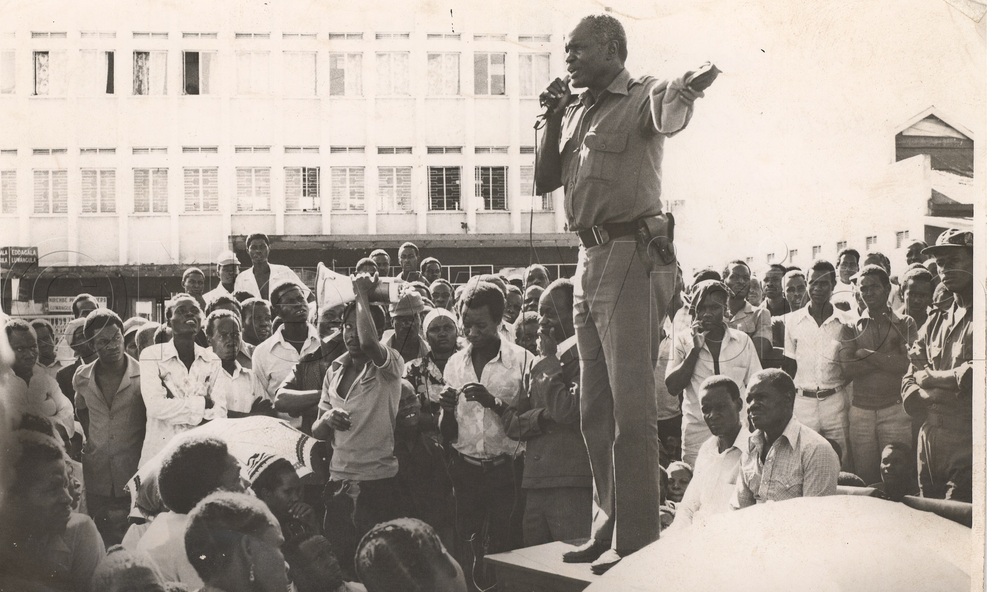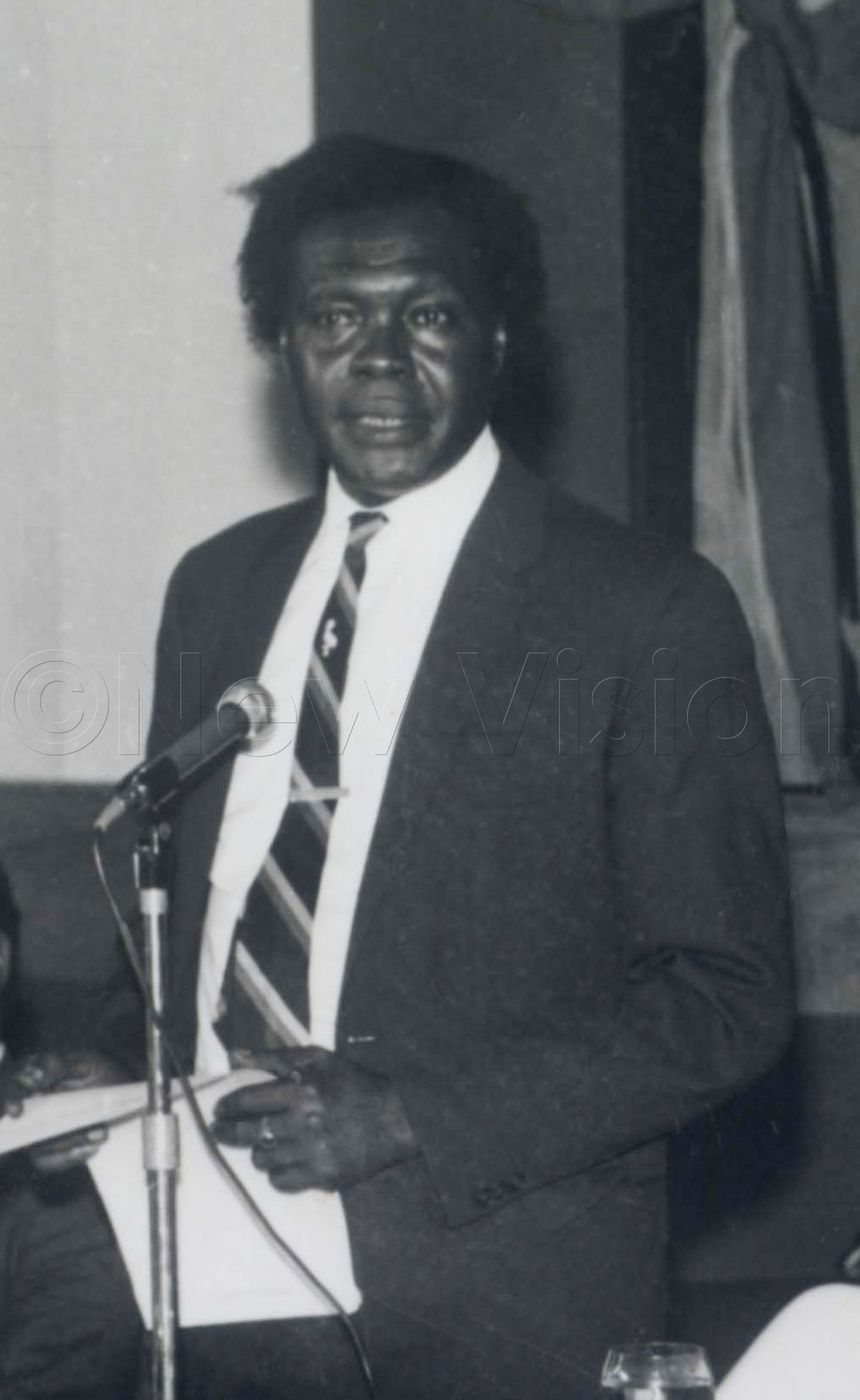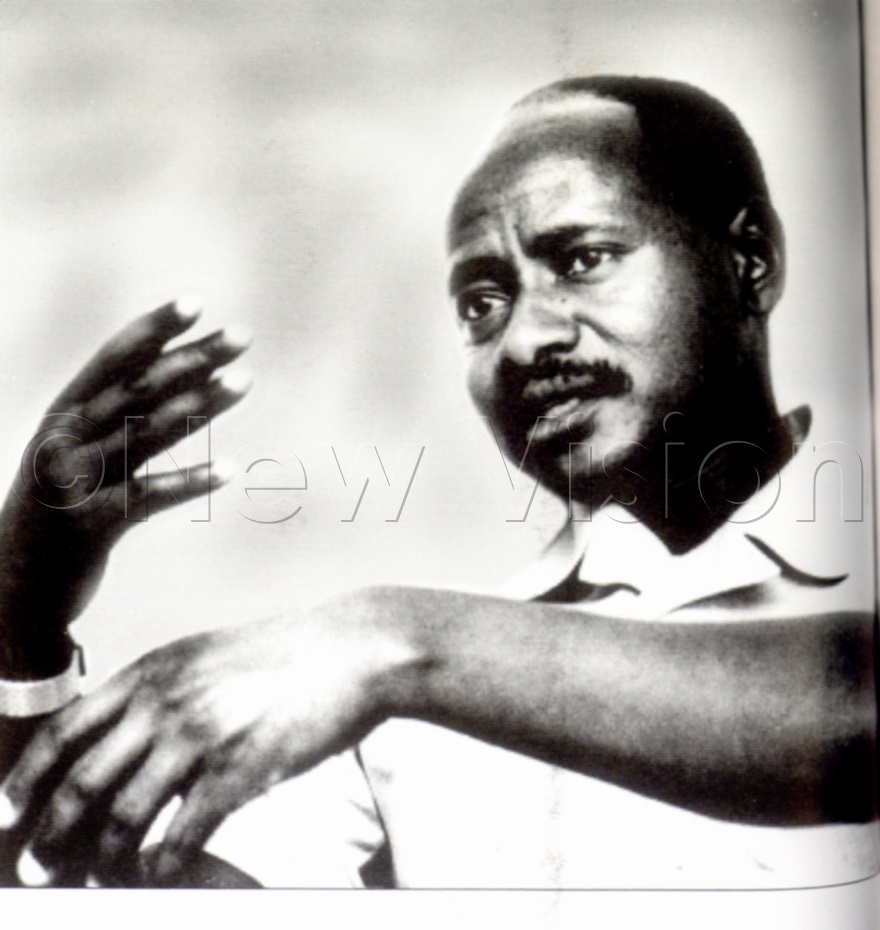Gen Tito Okello didn't want to be President
Upon taking power, Bazillio Okello, the coup leader, invited Gen. Tito Okello to take over as president. The quiet and reserved army commander reportedly declined.
UGANDA'S HISTORY
On Saturday morning, May 27, 1985, sustained spats of machine gunfire were heard around Makerere University in Kampala. Little did people know the early morning shooting was heralding the rise of Gen. Tito Okello Lutwa from army commander to president.
At the time, gunshots were not unusual. Kampala residents were used to them partly because of the war in Luwero, where the Uganda National Liberation Army (UNLA), the government force, was battling the National Resistance Army (NRA) rebels. So, the fighting often spilled into the city. Several other rebel groups, including Federal Democratic Movement of Uganda (FEDEMU) and Uganda Freedom Movement (UFM) were operating in Kampala and its surroundings.
Often, there were security swoops in the city during which suspected rebels were arrested amid gunfire. So gunshots and explosion were common in Kampala. But that morning, it was different. Besides the gunshots, columns of soldiers atop trucks driving the from Gulu direction were entering the city. Unaware that a coup was in the making, people who used to arrive in the city early thought the troops were on routine patrols.
Those days, people used to get into the city early for business and get out of town by 4:00pm. Even after heavy shooting in the night or early morning, people would still venture into town. Although business was low, there were those who had some items to sell and those looking for items to buy, especially food.

A few businessmen, who had opened their shops that Saturday morning, soon realised what they thought was the routine patrol was not. Truckloads of heavily-armed men drove through the streets and, sensing something unfamiliar, the business people retreated inside their shops and watched the drama unfold.
However, on the eastern flanks of Kampala, people were witnessing a different episode. From the wee hours of Saturday, they had noticed army vehicles driving at breakneck speed, heading towards Jinja.
Soon it emerged that as troops were entering Kampala from the north, others were driving out towards eastern Uganda. When residents in Jinja town saw the speeding vehicles, they immediately started fleeing. There was chaos at the Jinja Central Market as soldiers raided it, grabbing merchandise and money from the traders.
As all this was going on, president Apollo Milton Obote was at the Uganda-Kenya border at about 10:00am. He had fled Kampala after top army officers disobeyed his orders and retreated to Gulu, from where they marched into Kampala to topple him and put him on trial for misrule.
By midday, it was clear that Obote and his Uganda People's Congress (UPC) government had been overthrown.
This was the second time the army was overthrowing Obote. In 1971, while attending the Commonwealth Heads of Government Meeting in Singapore, the soldiers abandoned their barracks, occupied all strategic installation and announced a coup.

To the amazement of the people in Kampala when it became clear Obote had been toppled, some of the soldiers on patrol started chanting the Democratic Party (DP) slogans.
Aware of the tense political mood in Buganda, the army top brass had to win support from Buganda, punching the wind with clenched fists, the DP symbol, while singing: DP egumire! DP egumire! Aata leo - egumire! Ata kesho egumire. Besides, it had been rumoured years earlier that the coup mastermind, Brig. Bazillio Olara Okello, was a DP sympathiser.
Following the death of the then chief of staff, Maj. Gen. David Oyite Ojok in a helicopter crash in 1984, Gen. Tito Okello had hoped to replace him. But Obote instead picked Brig. Smith Apon Acak, his Langi tribemate and transferred Bazillio Okello as a northern division commander.
The appointment of Acak triggered an ethnic contest. The Acholi, who formed the bulk of the foot soldiers in the UNLA, claimed they were the only ones deployed to fight NRA rebels and were getting killed in large numbers.
Bazillio Okello is said to have made it clear that the Acholi would not accept to die at the hands of rebels any more, a position his boss Gen. Tito Okello reportedly agreed with. Reports say the two and other top Acholi officers tried to meet Obote but in vain. They then retreated to Gulu from where they marched into Kampala.
Upon taking power, Bazillio Okello, the coup leader, invited Gen. Tito Okello to take over as president. The quiet and reserved army commander reportedly declined. It took a lot of persuasion that he was the only one who would restore unity and sanity to a wrecked country, for him to accept. This encouraged him to accept the responsibility he was not sure he would carry out effectively.
During his reign, Tito Okello invited all the rebel groups that had been fighting Obote to join his government, hoping this would bring stability, but instead it accelerated the instability.

On arriving in Kampala, rebels who included Uganda National Rescue Front (UNRF), Former Uganda National Army (FUNA), FEDEMU and UFM occupied different parts of the city, turning them into their enclaves. For instance, UNLA controlled the central parts of Kampala, including the strategic Kololo summit. It also had Radio Uganda, Mbuya, Bugolobi and Lubiri-Mengo under its control. Kabalagala and Kisasi areas were under UFM and FEDEMU respectively.
Tito Okello found himself hostage to the various groups, including his own UNLA. Amiable and determined to restore order, he unilaterally declared a ceasefire and invited NRA to peace talks.
During the talks in Nairobi, it became increasingly clear he was unable to control the situation back home. The killings, harassment of civilians and looting of their property continued. His commitments at the talks were, therefore, undermined by blood-thirsty elements in his coalition forces.
NRA could not trust him and the military junta he headed. Eventually, the rebels broke the ceasefire and marched from their Masaka and Luwero defence lines and captured power on January 26, 1986. That ended Tito Okello's reign.

Gen. Tito Okello, a career soldier, served in the colonial and post-independence armies before fleeing the country after Idi Amin toppled Obote in 1971. He lived in exile in Tanzania from where he took part in the war against Amin. It was him who broke the impasse over who between Paulo Muwanga and Prof. Yusuf Lule should be president after Amin during the Moshi Conference. The conference had been convened to get all exiles together to hammer out a plan how to govern Uganda.
According to War in Uganda: The Legacy of Idi Amin by Tony Avirgan and Martha Honey, when Tito Okello's suggestion that Lule becomes president was adopted, the conference ended on a good note.
"Col. Tito Okello, who had prestige both as an elder statesman and military commander, proposed that in the spirit of unity, Lule should be elected chairman of the National Executive Committee (NEC) and Muwanga be named chairman of the Military Commission. The suggestion was quickly adopted as the consensus of the meeting," the two authors wrote.
Lule as the chairman of NEC became president after the fall of Amin and Muwanga later, also rose to the top position.
One common denominator of Lule, Muwanga and Tito Okello's regimes is that they were all equally chaotic.
First published in Sunday Vision, October 8, 2012. Vision Group Resource Centre